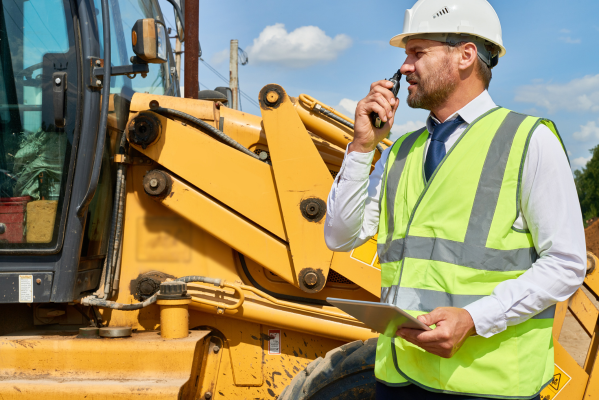Groundworks NVQ: Is It Hard to Pass?
The Groundworks NVQ (National Vocational Qualification) is a crucial certification for professionals responsible for site preparation, drainage, and foundations. But is it hard?
The NVQ is not academically difficult. It avoids theoretical exams and complex essays. Its challenge lies in the requirement for genuine, demonstrable on-site experience, consistency, and the discipline to meticulously document that competence. For an experienced groundworker, the NVQ is a demanding but highly achievable process of formalising skills they already use daily.

1. The Core Challenge: Verifying Existing Competence
The difficulty of the NVQ is often misunderstood because it’s a competence-based qualification. It doesn’t teach you how to lay kerbs or set out drainage; it assesses that you can already perform these tasks safely and efficiently to a national standard. Therefore, the course is impossible for a beginner. For an experienced groundworker, the difficulty shifts entirely to documentation. The challenge is in proving to a third party that your work is consistently high quality and compliant with safety procedures over a sustained period, which requires organisational discipline many hands-on professionals lack.
2. Groundworks NVQ: The Role of Sustained Experience
Your existing on-site experience is the single most significant factor in determining the difficulty of the NVQ. An experienced professional who has routinely carried out a variety of tasks- including excavation, sub-base construction, and utility installation- will find the process significantly easier. They already have the skills; they just need to gather the evidence. For instance, the assessor needs to see competence in laying drainage pipes to the correct fall. If you’re actively doing this work, the difficulty lies in setting aside time to take the necessary photos and get witness statements, not in performing the task itself.

3. What the Assessment Demands: Precision and Proof
The assessment is rigorous because it demands precision and proof. The process involves:
- Remote Observation: A qualified assessor remotely watching you perform a key groundworks task in a live environment. They look for accuracy, safety, and efficiency.
- Portfolio Evidence: Submitting documentation such as site records, method statements, and visual evidence (photos/videos) that show different aspects of your work.
- Professional Discussion: A recorded interview where you articulate your knowledge of safe working practices, planning, and problem-solving (e.g., handling utility strikes).
4. Groundworks NVQ: Key Skills That Are Tested
The NVQ assesses skills across several critical areas, confirming why the qualification is so essential:
- Technical Accuracy: Laying kerbs and paving, setting out areas, and constructing foundations to precise dimensions.
- Safety Protocols: Demonstrating expertise in safe excavation procedures, including soil stability, shoring techniques, and preventing collapse.
- Procedural Compliance: Understanding and adhering to site rules regarding plant operation, safe slinging and lifting, and waste management.
- Utility Installation: Correctly installing drainage systems and pipework with the necessary fall and connections.
Conclusion (Groundworks NVQ: Is It Hard to Pass?)
The NVQ is demanding, but its difficulty is a measure of applied practical competence and diligence rather than complex academic requirements. It’s not an easy pass, but it is highly achievable for an experienced groundworker.

If you still have any questions regarding the NVQ, then do not hesitate to get in touch.
Phone – 020 3488 4472





